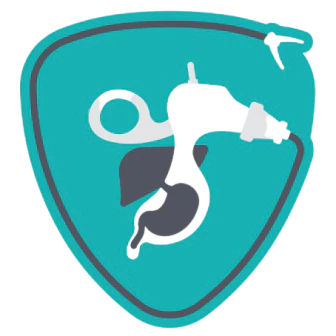Our gastrointestinal (GI) tract, also known as the digestive system, is a complex and hardworking network that breaks down food, absorbs nutrients, and eliminates waste. Unfortunately, this system isn’t invincible, and sometimes unwelcome guests – viruses, bacteria, or parasites – can take hold, causing a gastrointestinal infection.
These infections are quite common, affecting millions of people worldwide each year. While unpleasant, most GI infections are short-lived and resolve on their own. However, understanding the causes, symptoms, and prevention methods can help you navigate belly trouble and get back on your feet faster.
What Causes Gastrointestinal Infections?
Several types of microorganisms can cause a GI infection. Let’s explore some of the most common culprits:
- Viruses: These tiny invaders are responsible for a significant portion of GI infections. Rotavirus and norovirus are notorious for causing diarrhea, vomiting, and fever, especially in children.
- Bacteria: Bacteria like E. coli and Salmonella can contaminate food or water, leading to nausea, vomiting, cramps, and diarrhea.
- Parasites: Microscopic organisms like Giardia Lamblia can find their way into your system through contaminated food or water, causing bloating, gas, and diarrhea.
Symptoms To Look Out For
The telltale signs of a GI infection can vary depending on the specific cause, but some common symptoms include:
Diarrhea: Loose, frequent stools are a hallmark symptom of GI infections.
Vomiting: Expelling stomach contents can be a way for the body to expel harmful toxins.
Nausea: Feeling queasy and like you might vomit is a common GI distress indicator.\
Abdominal cramps: Painful muscle contractions in the abdomen can be quite uncomfortable.
Loss of appetite: The digestive system may be overloaded, leading to a lack of interest in food.
Fever: An elevated body temperature can be a sign of the body fighting off infection.
Dehydration: Excessive diarrhea and vomiting can lead to dehydration. Look for signs like dry mouth, fatigue, and decreased urination.
When to Seek Medical Attention
While most GI infections improve within a few days with rest and home care, there are situations where seeking medical attention is crucial. Here are some red flags:
- Severe or persistent diarrhea or vomiting: This can lead to dehydration, especially in young children and older adults.
- Bloody stools: This could indicate a more serious condition.
- High fever (over 102°F): This could be a sign of a more severe infection.
- Signs of severe dehydration: Extreme fatigue, dizziness, infrequent urination, or a sunken fontanel (soft spot) in infants.
Strategies for a Healthy Gut
Several steps can be taken to lower your risk of contracting a GI infection:
- Wash your hands frequently: Washing with soap and water for at least 20 seconds, especially before eating, after using the restroom, and after handling raw food, is a simple yet effective way to prevent infection.
- Practice safe food handling: Cook food thoroughly to safe internal temperatures, and avoid cross-contamination by keeping raw meat separate from other foods. Wash fruits and vegetables thoroughly before consumption.
- Be cautious with water: Only drink clean, treated water, especially when traveling. Avoid unpasteurized milk and dairy products.
- Maintain good gut health: Probiotics, which are live bacteria beneficial for digestion, can help maintain a healthy gut microbiome and may offer some protection against GI infections.
Treating GI Infections: Rest, Rehydration, and Sometimes Medication
The primary treatment for most GI infections involves rest and rehydration. Fluids are crucial to replace lost electrolytes and prevent dehydration. Over-the-counter medications can help manage symptoms like diarrhea or nausea.
In some cases, depending on the severity and cause of the infection, your doctor may prescribe antibiotics to target specific bacteria.
While GI infections can be a nuisance, they are usually temporary and manageable. By understanding the causes, symptoms, and preventative measures, you can navigate belly trouble with knowledge and confidence. Prioritize good food hygiene, stay hydrated, and consider incorporating gut-friendly practices like consuming probiotics. Remember, a healthy digestive system contributes significantly to overall well-being. So, take care of your gut, and it will take care of you!

